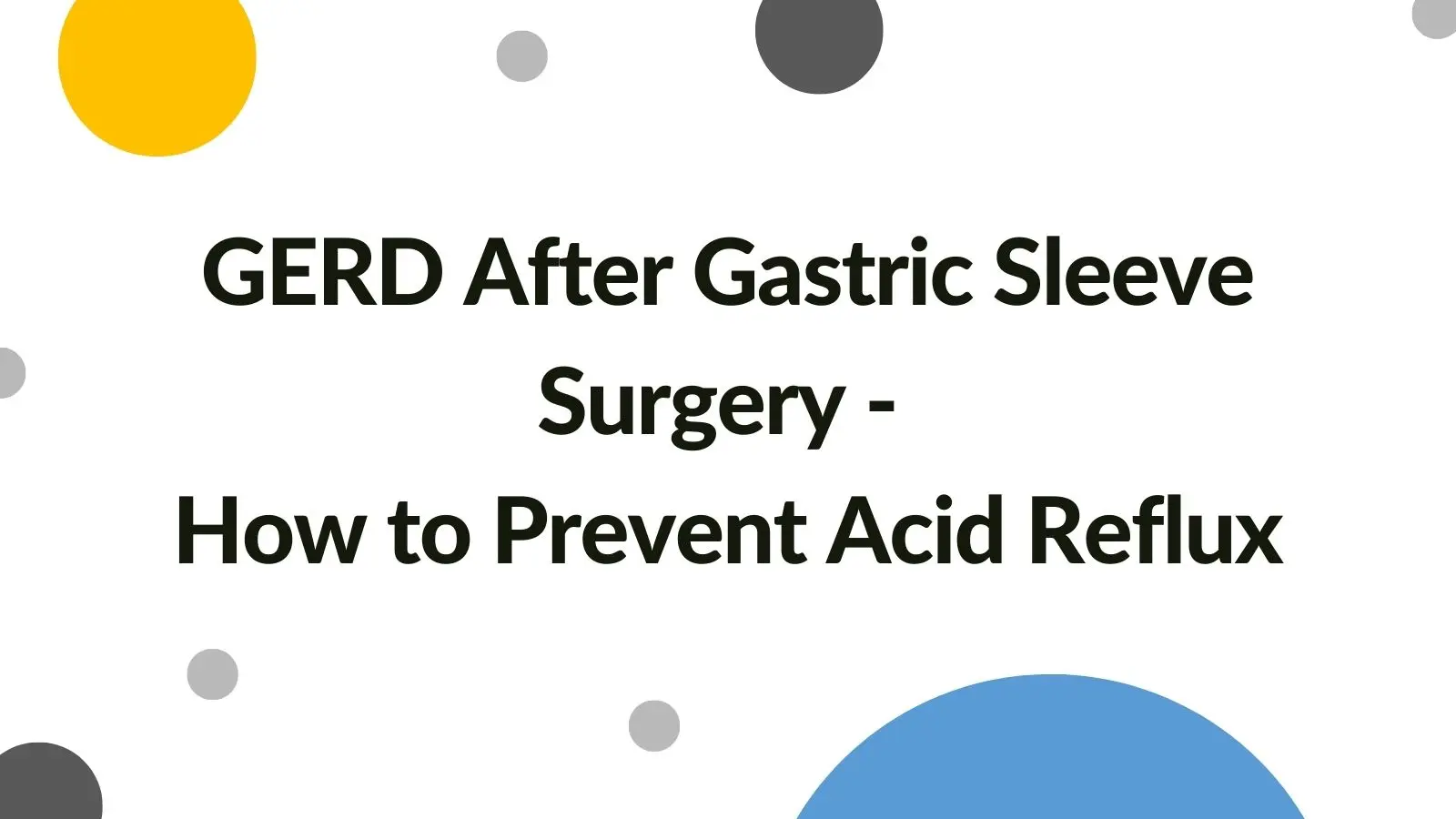
Dealing with GERD after undergoing gastric sleeve surgery can be both uncomfortable and challenging, especially during the post-surgery recovery process.
Gastroesophageal reflux disease (GERD) is a chronic condition that involves frequent bouts of acid reflux where the contents of the stomach flow back up the oesophagus, causing a burning sensation in the chest or back of the mouth.
If you undergo gastric sleeve surgery and suffer from GERD, you’ll be relieved to know that there are proven ways to prevent reflux from occurring. In this article, we’ll explain the connection between gastric sleeve surgery and GERD, the risks that GERD can have on your health, and how you can prevent it.
Table of Contents
- The link between gastric sleeve surgery and GERD
- Does gastric sleeve surgery increase the risk of GERD?
- How to prevent GERD after gastric sleeve surgery
- Post-surgery prevention tips
- Long-term prevention options
The Link Between Gastric Sleeve Surgery and GERD
It should come as no surprise the complex procedure of gastric sleeve surgery can result in side effects. GERD is one of the possible conditions that can arise because of the reduced size of the stomach.
In fact, multiple studies have shown that there is a connection between gastric sleeve surgery and GERD — up to 22% of gastric sleeve surgery patients experience the symptoms of acid reflux post-surgery.
The leading theory for the increased occurrence of GERD is that the now smaller stomach has significantly higher pressure compared to before, resulting in a higher chance of stomach contents travelling back upwards into the oesophagus.

Does Gastric Sleeve Surgery Increase the Risk of GERD?
In the short term, gastric sleeve surgery does appear to lead to an increase in the symptoms of GERD. If left unmanaged, GERD can lead to more severe conditions in your oesophagus.
The acidic contents of the stomach can irritate or even damage the delicate walls of your oesophagus and lead to conditions such as:
- Oesophagitis – Inflammation of the oesophagus’ tissue
- Oesophageal stricture – Development of scar tissue that narrows the oesophagus
- Barrett oesophagus – Tissue damage in the oesophagus that increases the risk of oesophagus cancer.
However, the same studies found that in the long term, the increase in gastric compliance (the ratio of stomach volume to pressure) can also result in the alleviation of the symptoms of GERD.
What this means is that it may take some time for your body and eating habits to get used to the change in your stomach’s size. With proper lifestyle adjustments after your gastric sleeve surgery, you should be able to experience fewer instances of GERD, if at all.
How to Prevent GERD After Gastric Sleeve Surgery
Now that we’ve explained how GERD can affect you, it’s important to know how you can prevent it from occurring both in the short term and the long term.
Post-Surgery Prevention Tips
The increased risk of GERD during the recovery period following gastric sleeve surgery makes acid reflux management all the most essential for your comfort. The symptoms of GERD can be mitigated with the help of these tips:
- Eating smaller meals: Your stomach no longer has the capacity it once had. Eating less can help to reduce gastric pressure and the likelihood of acid reflux occurring.
- Move after eating: Try to remain upright for at least 3 hours after eating. Consider going for a walk while your stomach digests your meal.
- Taking over-the-counter medication: Medicines such as antacids help to neutralise the intensity of your stomach acids and can alleviate the symptoms of GERD. Remember to consult your healthcare professional before taking any medication.

Long-Term Prevention Options
The symptoms of GERD tend to fade with time for most gastric sleeve surgery patients, but there are some who may continue to suffer from it due to complex factors. If you have been suffering from GERD for a prolonged period post-surgery, or are experiencing severe symptoms like excessive vomiting or greenish-yellow vomit even after practising the tips we’ve outlined above, you may require revision surgery.
Revision surgery is only necessary for patients who suffer from severe acid reflux or GERD despite the help of medication and lifestyle changes. A Roux-en-Y gastric bypass surgery can help to eliminate the high pressure of the stomach by bypassing it entirely. Post-revision surgery data has shown a 90% success rate in reducing GERD symptoms, making it a reliable long-term treatment solution for resolving GERD after gastric sleeve surgery.
Final Thoughts
The risks of GERD are present for gastric sleeve surgery patients, but they are ultimately only present in exceptional circumstances. The symptoms of GERD are manageable and can be eliminated over time with proper eating habits and lifestyle changes.
If you are having difficulty dealing with the symptoms of GERD after gastric bypass surgery, reach out to our expert bariatric surgeons and dieticians at Central Coast Surgery. We can provide you with helpful advice and options to make them more manageable so that you can get back to living your best life.
